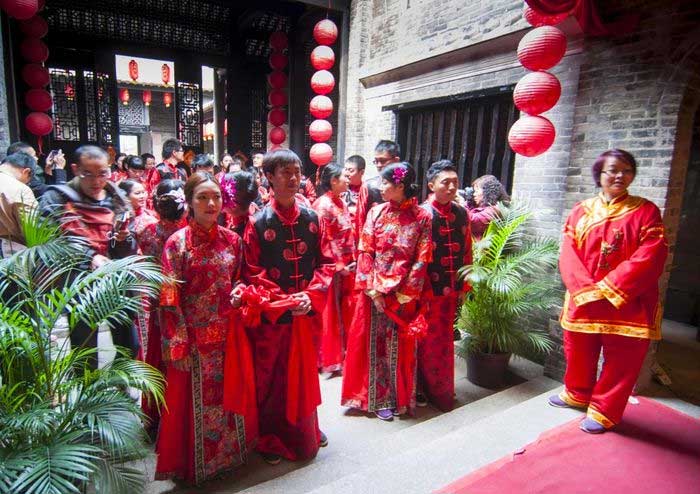Many social media users in mainland China believe that 2024, being the Year of the Widow, is an unlucky year for marriage, suggesting that women who marry this year are more likely to lose their husbands, according to the South China Morning Post.
The term Year of the Widow, or gua fu nian in Chinese, originates from a misunderstanding of the original name – Gua nian.
Gua nian means “the year without the Spring Festival” – something that ancient Chinese regarded as a sign of an auspicious year.
Over time, however, this original meaning has been lost, and an alternative interpretation has emerged. Specifically, in Chinese, yang signifies the sun – a representation of masculine energy. Therefore, a lack of spring is interpreted as a lack of masculine energy, which leads to the belief that this will be the Year of the Widow.
The Chinese calendar is based on yin and yang, integrating lunar months derived from the Moon’s cycle—where a month consists of either 29 or 30 days—and the solar calendar (Gregorian calendar) comprising 365 days. This results in some lunar years having two Spring Festival days, while in other years, the Spring Festival may not occur at all.

Marriage in China is rich with tradition and sometimes steeped in ancient superstitions. (Image: Shutterstock).
While superstitious individuals believe that people should marry in the Year of the Double Spring and avoid marriage in the Year of the Widow, statistics show the opposite.
The year 2013 (Year of the Snake) was also a Year of the Widow, yet it recorded the highest number of weddings since statistics began in 1978.
In fact, every 19 years, there are 7 such years, making it impractical to avoid weddings during these times. For many Chinese couples, the priority is on having children in an auspicious year rather than focusing on when to marry. According to folklore, children born in the Year of the Dragon are often seen as luckier.
Data from the National Bureau of Statistics of China (NBS) indicates that China’s population has declined for the second consecutive year, with a record low birth rate since 1949, at 6.39 births per 1,000 people, compared to 6.77 in 2022.
However, there is some promise of improvement in the Year of the Dragon. Zhai Zhenwu, a demographer and professor at Renmin University of China, noted that the desire to have children in the Year of the Dragon could lead to an increase in the birth rate in the coming year.
Some superstitious individuals also express concern over building new homes in the Year of the Widow, as the absence of a Spring Festival is considered bad feng shui.


















































